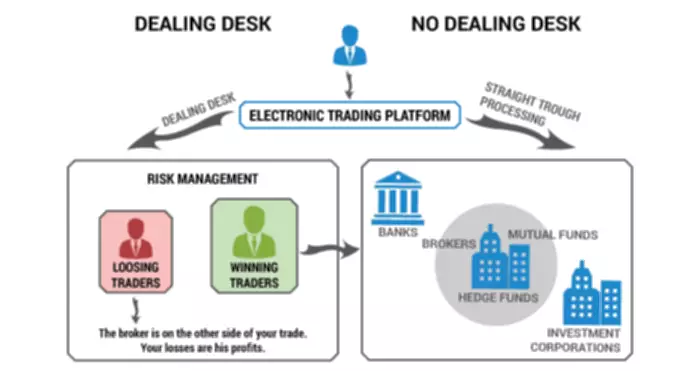The most vital distinction between them is their scalability, however difference between private and public blockchain in the end, deciding which one to use will rely on your explicit use case and priorities. If you favor full management over your community and to course of 1000’s of transactions in a matter of minutes, you may wish to persist with a non-public blockchain. However, if you favor an open-source environment and anonymity is a priority over scalability, your go-to option is a public blockchain. One of the most attractive features of a personal blockchain is its scalability. Since they do not occupy so many transactions and individuals, personal blockchains have a remarkably quick transaction velocity, especially compared to a public blockchain network. Also, whereas extra individuals in the blockchain present extra safety within the public blockchain vs non-public blockchain, it considerably slows down transaction time.
What Are Private Blockchains? A Fast Overview
In banking, using blockchain tech might mean sooner funds and settlements with fund transfers. Institutions are additionally eyeing the use of stablecoins, a cryptocurrency tied to the worth of fiat forex and managed by an issuing bank or investment company as a part of a centralized community. Issues like these elevate questions on whether or not private blockchains will stay part of the blockchain landscape sooner or later. The restricted entry, or “trusted” blockchain system, tends to make this more attractive to enterprises who want to hold some or all of their transaction info personal. A business could want to use a blockchain but it might not want all its information publicly accessible. A public blockchain may breach knowledge protection acts or give away enterprise secrets.
Blockchain Vs Distributed Ledger Use Case Examination

Some felt this broke the immutable precept and decided to continue utilizing the old chain, now known as Ethereum Classic. Get familiar with the terms associated to blockchain with Blockchain Basics Flashcards. Therefore, when a person tries to vary the blocks, he/she will create a special chain separating from the unique chain.
High Synthetic Intelligence Crypto Coins And Tokens
Depending on the use and requirements, Blockchains have been categorized into three types, public, personal, and consortium (also often identified as federated). Each of these Blockchain networks serves its function and solves specific problems, and every Blockchain has its own set of options and advantages over one another. Let’s start with the most generally recognized Blockchain, i.e., public Blockchain.
2 Key Parts Of Blockchain Technology
Another vital software of blockchain is within the subject of smart contracts. These are self-executing contracts with the phrases of the agreement immediately written into lines of code. The Ethereum blockchain, for example, has popularized using smart contracts. These digital contracts mechanically enforce and execute the terms of agreements, which can streamline processes in various industries, together with actual property and law. Creating belief is achieved by anchoring the data and executing the processes on a blockchain. With anchoring, the info is transformed by converting the unique input into an encrypted output with a set length.
Ethereum has been at the forefront of this motion, offering a platform the place developers can build and deploy DApps. Privacy and confidentiality are also main advantages of private blockchains. Since participation is proscribed to an invitation-only basis, organizations can control precisely who views the blockchain, ensuring that delicate knowledge isn’t uncovered to unauthorized events. This side is particularly appealing to industries like healthcare and finance, the place confidentiality is paramount.
Some designers have solved it using a aggressive and distributed validation/block proposing/reward system, whereas others have solved it utilizing a collateralized system. In different words, a blockchain is an enormous, shared database that shops data in the form of blocks. Blockchains use nodes to validate transactions and retailer them on the network. Each node replicates the database totally, making it inconceivable to switch or remove information from the blockchain.

This controlled environment not solely helps in adhering to rules but in addition in customizing the blockchain’s conduct to suit specific organizational needs. A personal blockchain, unlike the basic public blockchain, is a community where access is restricted to a selected group of people. This type of blockchain is commonly utilized by enterprises and organizations where privacy and control over the info are paramount.

Public blockchains characterize a revolutionary strategy to decentralized transaction processing, exemplified by networks like Bitcoin and Ethereum. These blockchain networks are open to anyone with web access, akin to a global public ledger accessible to all. Imagine a town square the place everyone can observe and participate in transactions, with each transaction recorded transparently for all to see.
- As we transfer forward, the knowledge of blockchain won’t only be beneficial but essential for professionals throughout various fields to leverage this expertise successfully.
- By keeping the information of shoppers, land data, and different essential information.
- Thus, the duty of maintaining the community is solely on the nodes.
- If even one of them will get leaked, it could mean a large loss for the corporate.
- However, Chinese citizens are still able to find ways to work around the ban through the use of platforms that China’s firewall can’t catch.
One of the primary advantages of private blockchains is their scalability. Because entry to a non-public blockchain is restricted and controlled, it could possibly handle extra transactions at sooner speeds compared to public blockchains. This makes private blockchains ideal for enterprises that require excessive transaction throughput and more predictable performance. The solution that’s optimum for a selected trade relies upon very heavily on what your actual industry is.
Public blockchains are shared, unrestricted open ledger techniques that allow anybody to hitch. Public blockchains often use cryptography to safe their networks due to their open, unrestricted nature. As public and private blockchains are among the commonest, we’ll evaluate them. The healthcare sector additionally advantages from blockchain, notably in managing medical data securely and efficiently. Patientory is a blockchain-based platform that allows safe storage and administration of well being data, offering sufferers and healthcare suppliers with entry to their info without compromising privateness.

Interoperability is another significant challenge for private blockchains. Different personal blockchains typically have hassle communicating with each other because of totally different protocols and standards. This can restrict the power to share data throughout different networks, which is often needed for large-scale industrial functions.
Read more about https://www.xcritical.in/ here.